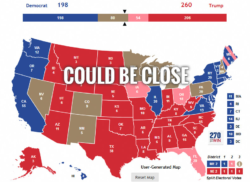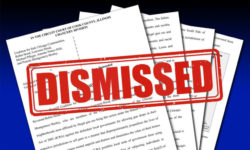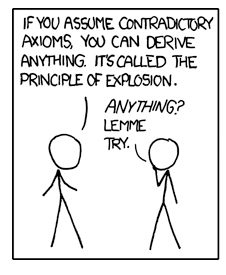 I asked why the Trump Family is making so many bad legal claims all of a sudden, and gave some guesses. Other people have noticed the trend too, and have their own theories:
I asked why the Trump Family is making so many bad legal claims all of a sudden, and gave some guesses. Other people have noticed the trend too, and have their own theories:
Digby says “Barr’s outrageous behavior and the White House attempts to stonewall all forms of oversight are pushing the Democrats toward impeachment, whether they want it or not.”
No word though on whether the strategy to trigger impeachment might be due to a political calculation that it would actually help Trump get re-elected. I don’t actually buy that, but I can see why it would seem like a way out an increasingly tight political box. Hey, it worked for President Clinton, didn’t it?
Paul Waldman says the goal is “Delay, delay, delay,” noting a suit I didn’t even mention, the subpoena-blocking lawsuit against his accountants.
I also forgot to mention Trump told all officials in the many departments to refuse to testify [beware video starts automatically]; presumably they’ll try to block the ensuing subpoenas too. So this is clearly a centrally coordinated strategy, such as it is.
Some other online comment, Jonathan Chait, on the anti-subpoena strategy, “The first thing to understand about this legal theory is that it is not a legal theory. … Trump’s opposition to congressional oversight appears to be an extension of his business strategy of threatening counterparties with expensive, time-consuming lawsuits in order to shirk his obligations. … [T]he courts might take long enough processing the “arguments” that Trump can keep his scandals bottled up until after the election. []Trump’s extreme litigiousness is a natural extension of his general lack of shame.”
And Ian Millhouser at ThinkProgress, “Here’s a pro tip for lawyers: if you are going to ask a court to fundamentally alter the balance of power between the legislative branch and the judiciary, it’s a good idea to accurately describe any Supreme Court cases you rely upon. It’s a bad idea to tell the court that a case that absolutely eviscerates your legal argument is the best thing you have going for you.” That said, after a full-bore takedown of the Trump v. Deutsche Bank case, he ends with this warning, “There is always a risk, no matter how clear the law may be, that this Supreme Court will ignore it.”
Meanwhile, however, stuff like DHS Asserting Broad, Unconstitutional Authority to Search Travelers’ Phones and Laptops is, sadly, just business as usual.
 Daily Kos is publishing excerpts from the Anonymous book on life inside the Trump administration. This little bit is arresting, although there will it seems be no arrests:
Daily Kos is publishing excerpts from the Anonymous book on life inside the Trump administration. This little bit is arresting, although there will it seems be no arrests:

 I asked
I asked  Post-Mueller, the Trump Family
Post-Mueller, the Trump Family 